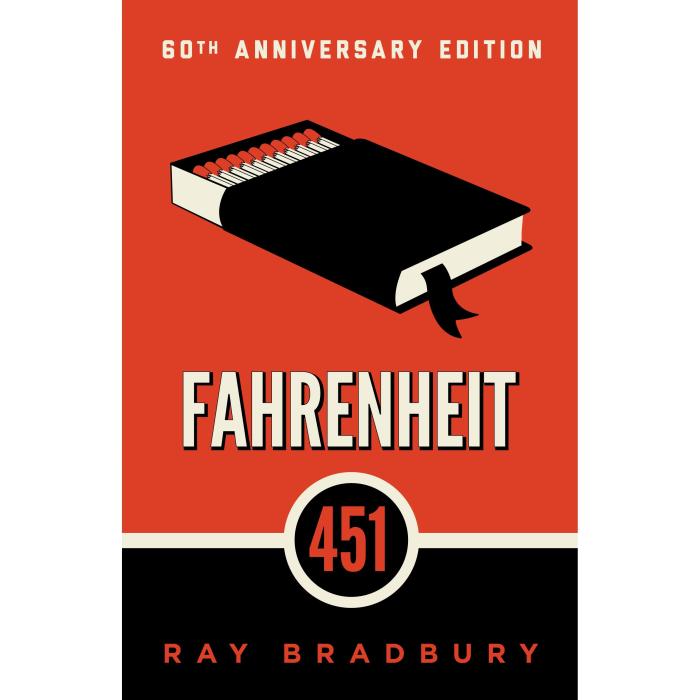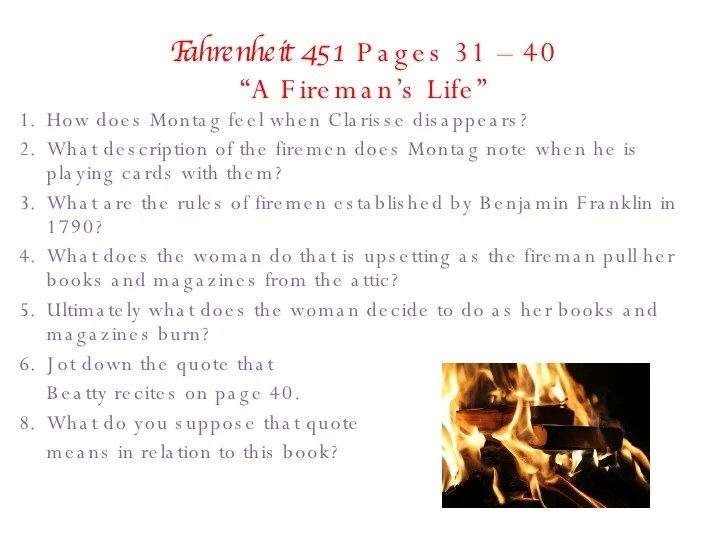Delving into Fahrenheit 451 pages 1-28 summary, this introduction immerses readers in a unique and compelling narrative, with an authoritative tone that is both engaging and thought-provoking from the very first sentence. These initial pages introduce the oppressive society, intriguing characters, and central themes that drive the novel’s exploration of dystopia and the power of literature.
Montag, the protagonist, is initially portrayed as a dedicated fireman tasked with burning books. However, his encounter with the enigmatic Clarisse McClellan challenges his beliefs and sets him on a path of questioning the established order.
Introduction

The opening pages of Ray Bradbury’s Fahrenheit 451 establish a compelling dystopian world and introduce the enigmatic protagonist, Montag. These pages set the stage for a profound exploration of censorship, individuality, and the power of literature.
Montag’s Characterization: Fahrenheit 451 Pages 1-28 Summary
Initially, Montag is a devoted fireman, content with his role in burning books and upholding the society’s anti-intellectual norms. However, his encounter with Clarisse McClellan, a free-spirited teenager, sparks a questioning within him.
The Symbolism of Montag’s Job
As a fireman, Montag’s job symbolizes the destruction of knowledge and the suppression of free thought. The act of burning books represents the erasure of history, ideas, and individuality.
The Dystopian Society

Fahrenheit 451 depicts a society where individuality is stifled, and technology serves as a tool of control. The government enforces strict censorship, prohibiting access to books and independent thought.
The Role of Technology and Censorship
The “Mechanical Hound” and “Seashell Radio” symbolize the oppressive nature of technology in this society. The Hound enforces conformity, while the Radio broadcasts propaganda, suppressing critical thinking.
Consequences of Suppressing Individuality
The suppression of individuality leads to a lack of creativity, curiosity, and empathy. Citizens become passive consumers of government-approved entertainment, unable to think for themselves.
The Power of Literature

In this dystopian world, books represent a beacon of hope and a source of knowledge. They challenge the established order and inspire critical thinking.
The Significance of Books and Literature
Books contain ideas, stories, and perspectives that challenge the government’s narrative. They provide a window into different worlds and foster empathy.
Themes and Motifs
Central Themes, Fahrenheit 451 pages 1-28 summary
- The dangers of censorship and suppression of free thought
- The importance of individuality and critical thinking
- The transformative power of literature
Significant Motifs
- Fire: Destruction and renewal
- Water: Cleansing and rebirth
- The Phoenix: Symbol of resilience and hope
FAQ Insights
What is the significance of pages 1-28 in Fahrenheit 451?
These pages introduce the novel’s protagonist, Montag, and his initial beliefs and experiences. They establish the oppressive nature of the dystopian society and the role of literature in challenging the established order.
How does Clarisse McClellan influence Montag?
Clarisse’s questioning nature and appreciation for beauty challenge Montag’s complacency and lead him to question the society he lives in.
What is the symbolism of Montag’s job as a fireman?
Montag’s role as a fireman represents the society’s suppression of knowledge and individuality. By burning books, he is complicit in the destruction of free thought.
